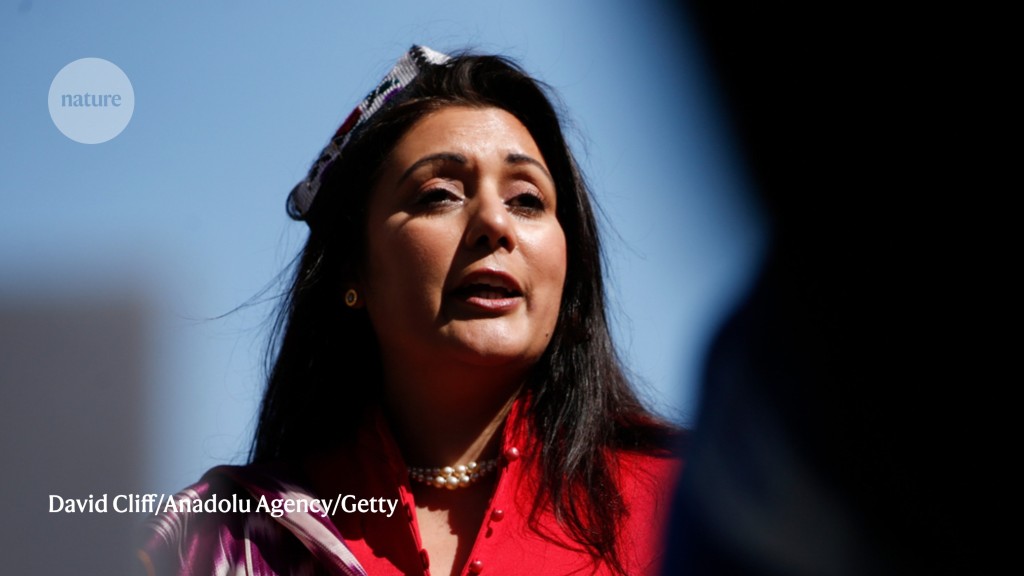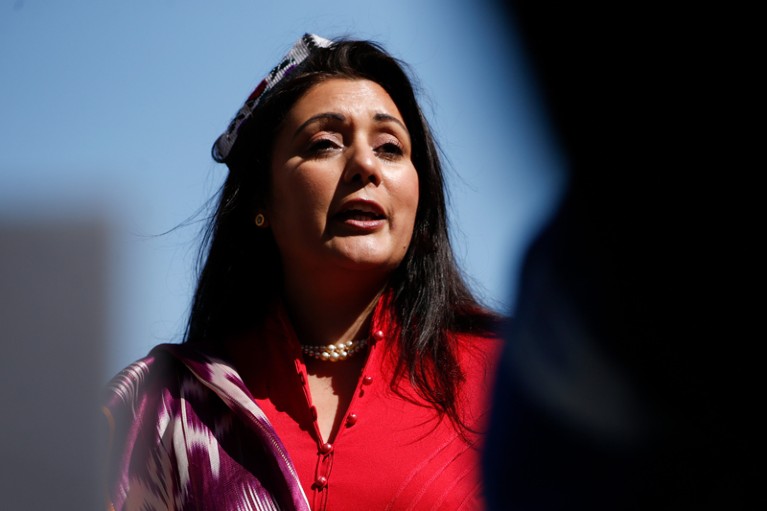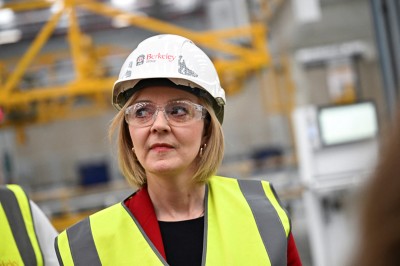Nusrat Ghani is the tenth UK science minister since 2010.Credit: David Cliff/Anadolu Agency/Getty
The UK government has finally announced the name of its next science minister. Nusrat Ghani, a member of parliament for a region in the southeast of England, will fill the role, which had been vacant for three months.
The delay in appointing a minister to oversee research and innovation has unsettled many UK scientists, who fear that new Prime Minister Liz Truss does not see science as a priority.
It is a relief that someone has finally been chosen for the role, says James Wilsdon, who studies science policy at the University of Sheffield, UK. But Ghani faces “a mounting to-do list, which is long and growing”.
Ghani joins the Department for Business, Energy and Industrial Strategy (BEIS) — which oversees science — as a senior minister. She succeeds George Freeman, who quit the role in July as part of a bid to force then-prime minister Boris Johnson to resign.
She faces a litany of pressing tasks. Fraught negotiations between the UK government and the European Commission over access to the nearly €100-billion (US$99-billion) research-funding programme Horizon Europe are likely to come to a head soon.
Where is the UK science minister? Government’s plans worry researchers
It looks increasingly probable that UK researchers will lose access to this funding stream as a result of Brexit. That would be a major blow to cross-continent collaboration. Although the UK government has said that it is developing a domestic back-up fund called Plan B to replace this income, details are scant.
Scientists are also concerned about the rising costs of running laboratories, as energy prices soar. The value of the pound plummeted in response to fiscal policies announced by Truss’s government on 23 September. Truss, who came to power in early September, was forced yesterday to backtrack on the most controversial policy — a planned tax cut for the highest UK earners.
Her government has yet not indicated whether it will stick with the previous administration’s target of raising research and development spending to 2.4% of gross domestic product by 2027.
“The real worry now with all the fresh talk of cuts to existing spending commitments is that aspects of [the] science [funding] settlement made in 2021 may be up for discussion, particularly if association to Horizon Europe does not happen,” says Wilsdon. Last year, the UK Treasury put aside £6.9 billion (US$7.9 billion) to foot the bill for participating in Horizon Europe and other European Union science programmes, or to fund any domestic alternative, until 2024–25. It would be a significant issue for the minister if the United Kingdom did not remain part of Horizon Europe and the money to fund Plan B had been clawed back, Wilsdon adds.
In 2020, the post of science minister was demoted to a junior role; with Ghani’s appointment, it has been reinstated to a senior department-level post. But Ghani will not attend cabinet, the meetings of roughly 20 of the most senior ministers who advise the prime minister, despite calls for the science minister to do so.
Ghani is the tenth UK science minister since 2010, and comes to the brief with limited experience of research. In 2018–20, she was a junior minister in the transport department, and between 2020 and 2022 she sat on the select committee that oversees BEIS’s work. Before entering politics, Ghani worked at the charities Age UK and Breakthrough Breast Cancer, which funded research into the disease.





More News
Author Correction: Bitter taste receptor activation by cholesterol and an intracellular tastant – Nature
Audio long read: How does ChatGPT ‘think’? Psychology and neuroscience crack open AI large language models
Ozempic keeps wowing: trial data show benefits for kidney disease